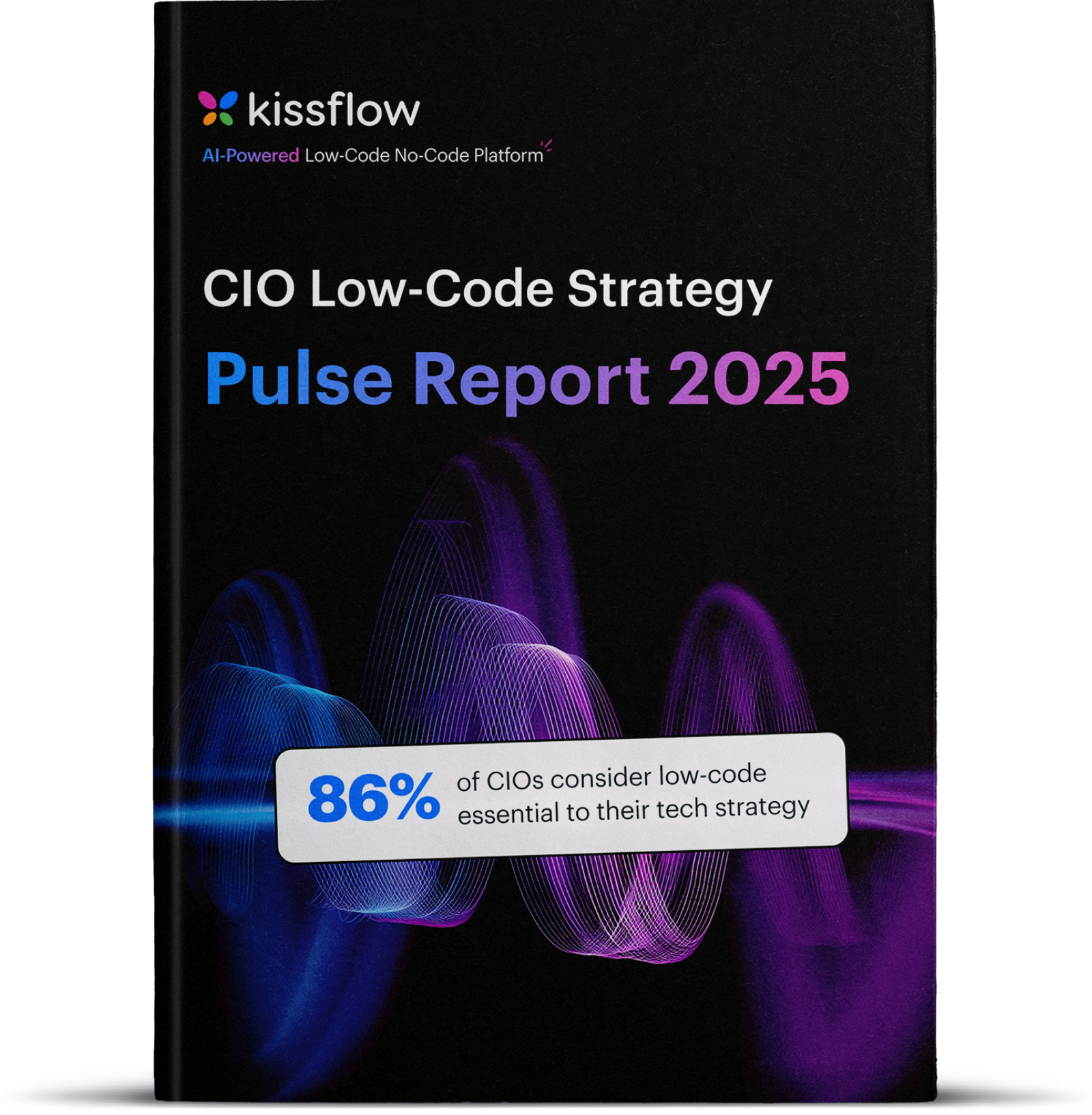
- >
- Workflow Platform >
- How To Automate Content Marketing Workflow?
How To Automate Content Marketing Workflow?
Content marketing workflow automation has evolved from a nice-to-have optimization to a business-critical necessity. The statistics show that 83 percent of marketing departments automate social media post processes, while 75 percent automate email marketing tasks. Companies implementing content marketing automation are seeing remarkable results, with 68 percent of businesses reporting increased content marketing ROI thanks to AI and automation integration.
The content marketing landscape in 2026 is defined by speed, personalization, and data-driven decision-making. Organizations that master content workflow management are not just surviving the increasing content demands—they're thriving with a 70 percent increase in ROI when using AI-powered automation tools.
What is the content marketing workflow in 2026
Content marketing workflow is the strategic process of streamlining and automating the series of steps involved in planning, production, editing, distribution, and performance management of marketing content. Unlike traditional approaches, modern content flow incorporates AI-powered tools, automated distribution channels, and data-driven optimization at every stage.
The evolution is striking: 90 percent of content marketers plan to use AI in their 2026 strategies, representing a massive increase from 64.7 percent in 2023. This shift reflects the growing sophistication of content workflow management systems that can handle everything from topic ideation to performance analysis.
Today's content marketing workflow encompasses multiple integrated systems that work together to create a seamless content flow. The workflow contains defined automation rules that guide each content piece through its lifecycle, from initial concept to final distribution and performance tracking.
Why content marketing automation is essential in 2026
The demand for content has reached unprecedented levels. 81 percent of marketers say content marketing is a core business strategy in 2026, while companies with documented content strategies see 33 percent higher ROI than those without structured approaches.
The challenges are real: 77.6 percent of content marketers struggle with getting content to rank, while 70.6 percent find it difficult to meet user search intent. Additionally, 66.5 percent of content marketers struggle with knowing where to allocate resources, highlighting the need for systematic workflow approaches.
Content marketing automation addresses these challenges by providing structure, consistency, and scalability. 77 percent of marketers agree that AI helps them create better, more personalized content, while 84 percent of marketers report that AI improved the speed of delivering high-quality content.
5 steps to automate your content marketing workflow
Step 1: Content strategy and SEO analysis
Modern content workflow management begins with data-driven content strategy development. 47 percent of marketers now use AI to create content marketing strategies, representing a fundamental shift in content planning.
The process starts with automated keyword research and competitive analysis. AI-powered tools can analyze search volumes, competitor content gaps, and trending topics to inform your editorial calendar. 58 percent of marketers use AI tools for research and topic ideas, streamlining what was once a manual, time-intensive process.
Key automation elements:
-
Automated keyword research and search volume analysis
-
Competitive content gap identification
-
Trending topic monitoring and alerts
-
SEO opportunity scoring based on keyword difficulty and search intent
-
Content brief generation with target keywords and structure recommendations
Step 2: Content creation and optimization
Content creation has been revolutionized by AI assistance, though human oversight remains crucial. 68 percent of businesses see increased content marketing ROI by adopting AI, while 79 percent of content marketers report improved content quality with AI assistance.
The automation focuses on supporting human creativity rather than replacing it. 93 percent of marketers use various methods to review AI-generated content before publishing, emphasizing the importance of human oversight in the content flow.
Automated content creation features:
-
AI-powered content outlines and first drafts
-
Real-time SEO optimization suggestions
-
Automated readability and tone analysis
-
Grammar and style checking
-
Content performance prediction based on historical data
-
Automated image and visual content suggestions
Step 3: Content review and approval workflow
Streamlined approval processes are critical for maintaining content quality while ensuring efficient throughput. 60 percent of organizations achieve ROI within 12 months of implementing workflow automation, largely due to reduced bottlenecks in approval processes.
Automated approval workflows eliminate the chaos of email chains and manual handoffs. The system automatically routes content to the appropriate reviewers based on content type, subject matter expertise, and approval hierarchy.
Automated approval features:
-
Role-based content routing to appropriate reviewers
-
Automated notifications and deadline reminders
-
Version control and change tracking
-
Parallel review processes for faster turnaround
-
Automated escalation for overdue approvals
-
Integration with project management tools
Step 4: Multi-channel content distribution
Content distribution automation has become sophisticated, with 90 percent of marketers using social media to share content. The key is coordinating distribution across multiple channels while maintaining message consistency and timing optimization.
Modern content marketing automation platforms can automatically adapt content formats for different channels, schedule posts at optimal times, and track performance across all distribution points.
Distribution automation capabilities:
-
Cross-platform content formatting and optimization
-
Automated scheduling based on audience activity patterns
-
Email newsletter automation with personalized content
-
Social media post scheduling and optimization
-
Content syndication to partner sites
-
Automated content repurposing for different formats
Step 5: Performance tracking and optimization
The final step focuses on continuous improvement through automated performance monitoring. 84 percent of B2B marketers find it challenging to collect data and measure content performance across various platforms, making automated analytics crucial.
Performance tracking automation provides real-time insights into content effectiveness, audience engagement, and conversion attribution. This data feeds back into the content strategy phase, creating a continuous improvement loop.
Automated analytics features:
-
Real-time content performance dashboards
-
Automated A/B testing for headlines and content formats
-
Conversion attribution tracking across touchpoints
-
Audience engagement pattern analysis
-
Content ROI calculation and reporting
-
Automated optimization recommendations
Advanced content marketing automation strategies
AI-powered content personalization
Personalization at scale has become achievable through content marketing automation. 77 percent of marketers use automation tools to create personalized content for their audiences, while 72 percent of companies use automation to deliver personalized experiences.
AI can analyze user behavior, preferences, and engagement patterns to automatically customize content delivery. This includes dynamic content insertion, personalized email sequences, and adaptive website experiences.
Omnichannel content orchestration
91 percent of decision-makers report rising automation demands, largely driven by the need for consistent omnichannel experiences. Content marketing automation platforms can coordinate content delivery across email, social media, websites, and mobile apps.
The integration ensures message consistency while optimizing content format and timing for each channel's unique characteristics and audience behaviors.
Predictive content analytics
Advanced content workflow management systems now incorporate predictive analytics to forecast content performance before publication. Machine learning algorithms analyze historical performance data, audience engagement patterns, and market trends to predict which content will resonate most effectively.
This capability allows content teams to prioritize high-impact content and adjust strategies proactively rather than reactively.
Measuring content marketing automation success
Productivity and efficiency metrics
Organizations implementing content marketing automation report significant productivity gains. 83 percent of marketers using AI report increased productivity, while AI saves marketers more than 5+ hours every week on average.
Key productivity metrics to track include:
-
Content creation time reduction
-
Approval cycle acceleration
-
Publishing frequency increases
-
Team collaboration efficiency
-
Resource allocation optimization
ROI and performance indicators
The financial impact of content marketing automation is substantial. Companies earn $5.44 for every $1 spent on marketing automation, while 76 percent of companies see ROI from marketing automation within a year.
Essential ROI metrics:
-
Content production cost per piece
-
Lead generation cost reduction
-
Conversion rate improvements
-
Customer acquisition cost optimization
-
Revenue attribution to content marketing efforts
Quality and engagement improvements
Content quality improvements are measurable through various engagement metrics. 25 percent of marketers report that AI-generated content is more successful than content created without AI, while 45 percent see more efficient workflows and 42 percent experience improved content optimization.
Content marketing workflow roles and responsibilities
Content strategist and managing editor
The content strategist oversees the editorial calendar, content themes, and strategic alignment. This role involves setting content goals, managing workflow processes, and ensuring content supports business objectives. They coordinate between different teams and maintain the overall content vision.
SEO specialist and content analyst
The SEO specialist focuses on keyword research, on-page optimization, and search performance tracking. They work closely with content creators to ensure all content is optimized for search engines and aligns with target keyword strategies.
Content creators and writers
Content creators produce the actual content pieces, whether blog posts, videos, infographics, or social media content. They work within the established guidelines and brand voice while incorporating SEO requirements and strategic objectives.
Content operations manager
This role manages the technical aspects of content workflow management, including tool integrations, automation setup, and performance monitoring. They ensure the workflow runs smoothly and optimize processes for maximum efficiency.
Community manager and distribution specialist
The community manager handles content distribution across social platforms and engagement with audiences. They customize content for different channels and monitor community feedback to inform future content strategies.
Check out ⋙ How to Optimize Content Management Workflow
Future trends in content marketing automation
AI integration and generative content
9 out of 10 marketers are set to ramp up AI integration in 2026, with nearly 60 percent of respondents expecting to increase investment in AI tools. The focus is shifting toward more sophisticated AI applications that can handle complex content strategy decisions.
Future AI capabilities will include predictive content planning, automated content performance optimization, and sophisticated personalization engines that adapt content in real-time based on user interactions.
Voice and conversational content optimization
With the rise of voice search and conversational AI, content marketing workflows are adapting to optimize for natural language queries and voice-activated devices. This includes creating content that answers questions in conversational formats and optimizing for featured snippets.
Interactive and multimedia content automation
Video content automation is expanding rapidly, with 45 percent of marketers citing video as their top-performing content format in 2026. Automated video creation, interactive content generation, and multimedia optimization are becoming standard features in content marketing automation platforms.
Common content marketing automation challenges
Technology integration and tool selection
Only 28 percent of organizations use many features of their marketing automation tools, indicating a gap between tool capability and implementation success. Selecting the right technology stack and ensuring proper integration remains a significant challenge.
Organizations must balance feature richness with usability, ensuring their teams can effectively utilize automation tools without becoming overwhelmed by complexity.
Content quality and brand consistency
While automation increases efficiency, maintaining content quality and brand voice consistency requires careful planning. 60 percent of marketers worry that AI-generated content might harm their brand's reputation, highlighting the importance of proper oversight processes.
Skills development and team adaptation
The shift toward automated content workflows requires new skills and mindsets. 48 percent of content writers cite working with new technology like AI as their most popular skill interest, indicating the need for ongoing training and development.
How Kissflow transforms your content marketing workflow
Implementing comprehensive content marketing automation doesn't require complex technical implementations or expensive custom development. Kissflow's low-code workflow automation platform empowers marketing teams to create, customize, and optimize their entire content marketing workflow without extensive technical expertise.
With Kissflow's intuitive drag-and-drop interface, marketing teams can design automated workflows that handle everything from content ideation and creation to approval processes and distribution management. The platform's powerful integration capabilities ensure seamless connectivity with your existing marketing tools, content management systems, and analytics platforms.
Whether you're looking to streamline editorial calendar management, automate content approval processes, coordinate multi-channel distribution, or implement sophisticated performance tracking, Kissflow provides the flexible foundation that adapts to your unique content marketing needs. The platform's proven track record of helping organizations achieve measurable productivity gains and process improvements makes it the ideal choice for modern content marketing teams ready to embrace workflow automation.
Transform your content marketing with intelligent workflow automation
Related Articles







